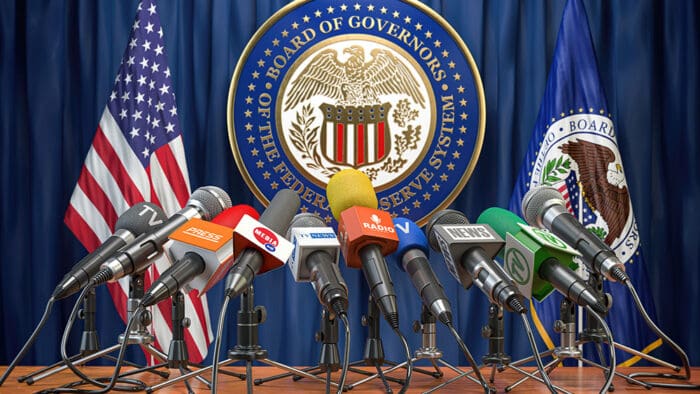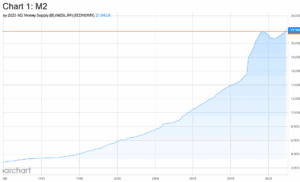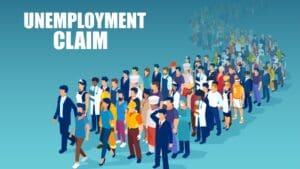Interest rates remain top of mind for a wide range of investors. But it is important to remember that not all investors have the same backgrounds and objectives. When the question of real interest rates arises, one’s preference has much to do with whether they tend to be borrowers or lenders. And remember, at some level, Fed Chair Powell is the “Borrower in Chief”.
We’ve all heard that Powell is the first non-economist to helm the Federal Reserve in decades. He’s a lawyer by training. But it is crucial to remember that his greatest success came as an investor. His biography shows that he worked as an investment banker after graduating law school and eventually he became a partner at the Carlyle Group, which began as a private equity firm doing leveraged buyouts. This type of investing relies upon borrowed money – lots of it.
This is one of the reasons why markets tend to give Chair Powell the benefit of the doubt. Sure, he’s an investor rather than an economist, but he’s also an investor who aggressively utilized borrowed money to achieve his returns.
Those who borrow money prefer low, or ideally negative, interest rates. They greatly prefer entering into a contract that enables them to pay their debts in a currency that has lost purchasing power – especially if the borrowed money can be used for assets that appreciate faster than the cost of money.
Those who lend money prefer positive real interest rates. They enjoy the opportunity to invest in relatively safe investments that offer yields above the prevailing rate of inflation.
Now, think about where the power in this economy lies. The modern financial system rests upon layers of debt. At the root is government debt, then various types of corporate and other private debts are priced to offer rates that are typically priced in relation to government debt. All those who borrowed the trillions of dollars would prefer to pay their lenders back with cheaper money, i.e. lower real rates.
Inflation, which is bad for consumers and those who hold cash, can work in the favor of borrowers. Of course, too much inflation can cause a wide range of economic issues that can adversely affect those borrowers, but a moderate level of inflation, say, 2%, suits most of them just fine.
This is also why if inflation is bad for an economy like ours, deflation is worse. Deflation impedes borrowers’ ability to service their debts. If an economy rests upon a foundation of debt, deflation erodes that foundation, negatively impacting both borrowers and those who lent them money. We have a government that has immense borrowing needs and a wide range of assets that were purchased with borrowed money. All of them would prefer to see some inflation alongside low nominal interest rates.
Yesterday we published a piece with several charts, including two with historical real interest rates. Negative rates were an extreme abnormality for most of economic history, yet we became accustomed to them during the 2010’s and beyond. It is clear that Fed Funds traders and equity investors would like to see them return. In fact, they might even expect them to return. My gut says that barring some sort of economic crisis there should be little reason for negative real rates to return. But when we consider the inherent biases of the man who steers the economy along his preferred rate path, the idea is not that far-fetched.
Join The Conversation
For specific platform feedback and suggestions, please submit it directly to our team using these instructions.
If you have an account-specific question or concern, please reach out to Client Services.
We encourage you to look through our FAQs before posting. Your question may already be covered!
Leave a Reply
Disclosure: Interactive Brokers
The analysis in this material is provided for information only and is not and should not be construed as an offer to sell or the solicitation of an offer to buy any security. To the extent that this material discusses general market activity, industry or sector trends or other broad-based economic or political conditions, it should not be construed as research or investment advice. To the extent that it includes references to specific securities, commodities, currencies, or other instruments, those references do not constitute a recommendation by IBKR to buy, sell or hold such investments. This material does not and is not intended to take into account the particular financial conditions, investment objectives or requirements of individual customers. Before acting on this material, you should consider whether it is suitable for your particular circumstances and, as necessary, seek professional advice.
The views and opinions expressed herein are those of the author and do not necessarily reflect the views of Interactive Brokers, its affiliates, or its employees.




















Very well outlined!
We hope you continue to enjoy Traders’ Insight!
Feels like his bias a soft landing which he is achieving brilliantly – yes, people who are actively rooting for a recession (like Trump) or those that have their money outside the markets will always find a reason to complain.
trump isn’t rooting for a recession, he’s politicking like harris (who I may add has no clue about any of this)
He absolutely roots for a recession – he didn’t want to solve the border problem because it hurts him. And as far as Harris not having a clue, I recall Trump leaving with negative job growth and a destroyed economy while Biden/Harris have created 16 million jobs while solving inflation. Seems like only one person has a clue and that’s Harris.
With inflation, the government debt reduced to 83 cents for every dollar owed. That is a reduction of 6 trillion dollars.
You completely left out the dual mandate of the fed and focused solely on the inflationary side of the mandate as a possible reason as to why Powell did what he did. Powell has been explicit that the risks have become more balanced and therefore policy should be recalibrated towards the risk to unemployment in an overall slowing economy.
Yes, he’s dovish — but it’s not because he prefers it or that he’s the “borrow in chief” or some inherit cognitive bias as you put it. If unemployment were low and inflation high, you better believe he would not be cutting rates as was demonstrated for over 2 years
This is the correct take.
Great piece, a perspective I did not know about, I predict Powell along with Yellen will end up destroying our economy. The cheerleaders in the comments above seem young and uneducated about the harm ZIRP has created, I do hope the FED’s hand is forced and they never return.
LOL okay – people have been saying that for 3 years now when they have achieved what nobody thought was possible, the soft landing. And the rally is just starting!
Rounded top… until money decides where it would be best put to use/spent or not.
It’s an election year.
I agree that the dual mandate is central to the recent FED actions, but the interpretations are diverse and largely political. Not long ago a recession was predicted by most economists and now that has converted to a soft landing. However, inflation surged prior to the current moderating trend due to excessive stimulus. Those who are calling this a success have forgotten the real impact of the inflationary period. Loose monetary policy, coupled with stimulus, can often lead to inflation and efforts to reduce it should be commended.